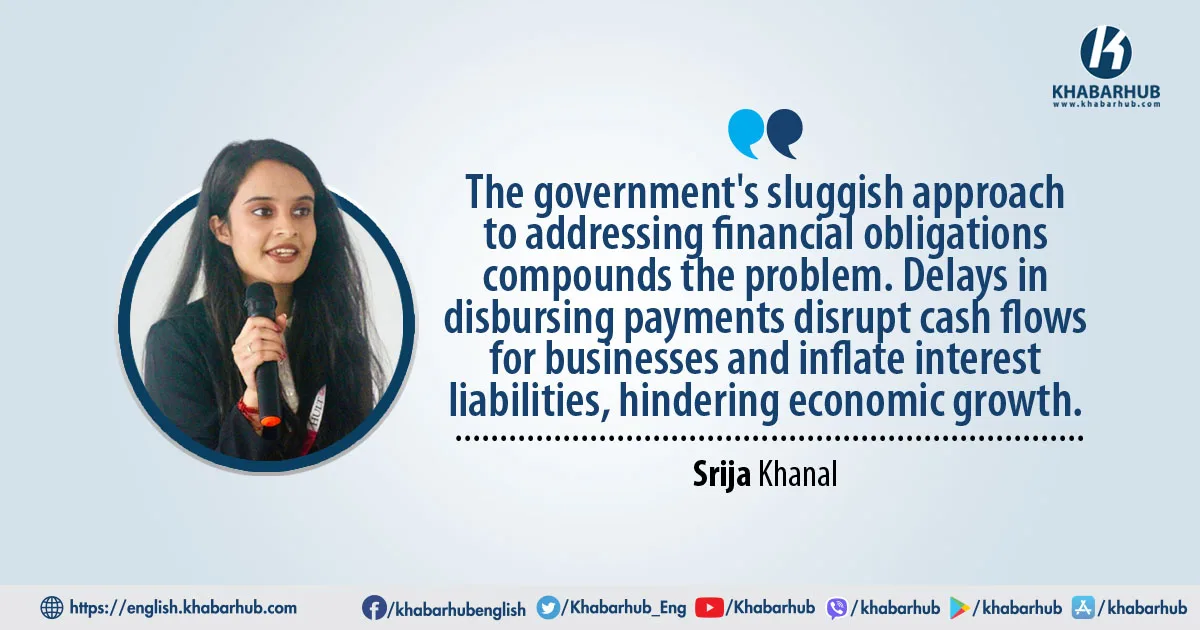Nepal finds itself at a critical crossroads in its economic journey, grappling with a myriad of challenges that hinder its path to recovery.
At the forefront of these obstacles lies the volatile nature of government policies, creating a landscape of economic regulations akin to a shifting sand dune.
With policies changing frequently and sometimes without thorough investigation or foresight, businesses and investors are left navigating an uncertain terrain, hampering long-term planning and investment.
An illustrative example of this volatility occurred in 2022 when Nepal attempted to save foreign exchange by imposing import restrictions.
While the embargo, spanning April to December 2022, succeeded in reducing the trade deficit, it also triggered a perilous economic slowdown.
Government revenue plummeted, affecting project financing, and import restrictions caused sharp declines in imports, exports, and government income.
Policymakers need to engage in thorough research and consultation before enacting changes, ensuring decisions are informed by empirical evidence and strategic foresight.
The heavy reliance on imports exacerbated the impact. For instance, imports decreased by 16.08%, totaling Rs1.61 trillion, with petroleum products alone accounting for Rs352.71 billion.
Exports fell by 21.44% to Rs157.14 billion. The International Monetary Fund cautioned against adverse effects such as lower government revenue and increased corruption due to trade barriers, emphasizing the need for sustainable solutions to address trade imbalances.
Furthermore, the government’s sluggish approach to addressing financial obligations compounds the problem. Delays in disbursing payments disrupt cash flows for businesses and inflate interest liabilities, hindering economic growth.
Despite government efforts, inflation has remained stubbornly high, standing at 6.5% in 2023/24 and anticipated to decrease marginally to 5.5% in 2024/25.
Similarly, economic growth projections have faced challenges, with initial forecasts of 6% in 2023/24 revised down to 3.6% by the fiscal year’s end.
The inefficient utilization of capital expenditure exacerbates Nepal’s economic woes. In the first seven months of the previous fiscal year, only 21.05% of allocated funds were utilized for capital expenditure.
Embracing technology and digital platforms can enhance transparency and reduce opportunities for corruption, fostering a conducive environment for economic growth.
Out of the Rs 302 billion earmarked, only Rs 63.57 billion was spent, reflecting a worsening trend compared to previous years.
Bureaucratic hurdles, delays in tender processes, and issues with donor-funded projects contributed to this sluggish expenditure.
Then Finance Minister Prakash Sharan Mahat acknowledged these obstacles and pledged to address them, highlighting the urgent need for expedited development project implementation.
To overcome these multifaceted challenges, a comprehensive approach prioritizing stability, transparency, and long-term planning is imperative.
Policymakers need to engage in thorough research and consultation before enacting changes, ensuring decisions are informed by empirical evidence and strategic foresight.
Enhancing the efficiency and accountability of government processes, including timely disbursement of payments and streamlined bureaucratic procedures, is paramount.
By addressing systemic issues such as policy volatility, delayed payments, and inefficient capital expenditure, Nepal can unlock its full potential and embark on a trajectory of sustainable development.
Embracing technology and digital platforms can enhance transparency and reduce opportunities for corruption, fostering a conducive environment for economic growth.
Moreover, fostering a culture of investment and entrepreneurship is essential. Providing incentives for domestic and foreign investors, coupled with initiatives to empower aspiring entrepreneurs, can stimulate economic growth and innovation.
Access to finance, skill development programs, and supportive regulatory frameworks are integral components of this endeavor.
Prioritizing inclusive and sustainable development is vital for long-term resilience, ensuring the needs of marginalized communities are addressed, and natural resources are safeguarded.
In conclusion, while Nepal’s journey to economic recovery is fraught with challenges, it remains within reach.
By addressing systemic issues such as policy volatility, delayed payments, and inefficient capital expenditure, Nepal can unlock its full potential and embark on a trajectory of sustainable development.
With concerted efforts and strategic reforms, the vision of a prosperous and thriving Nepal can become a reality.









Comment